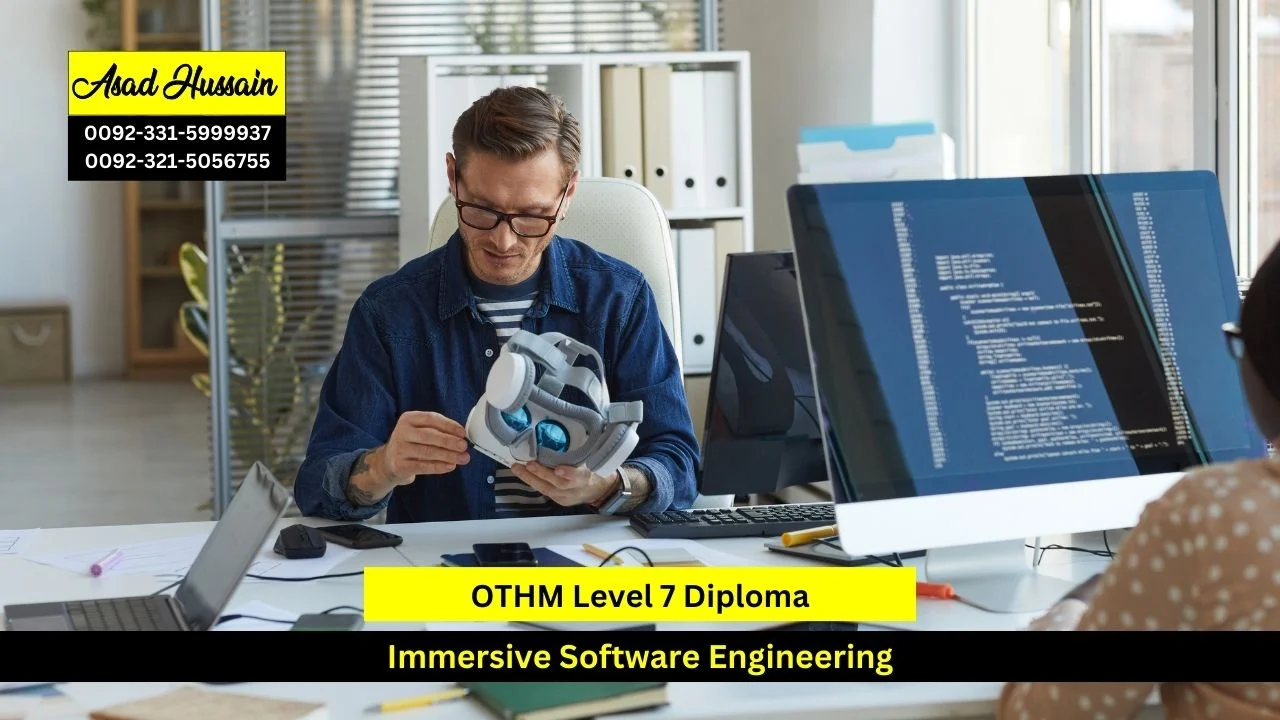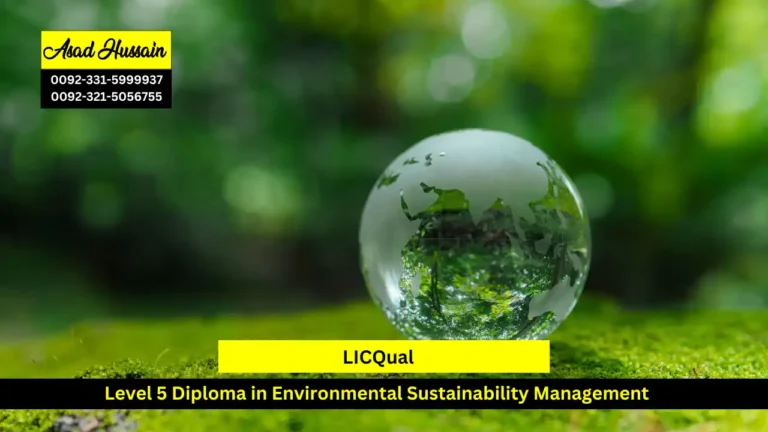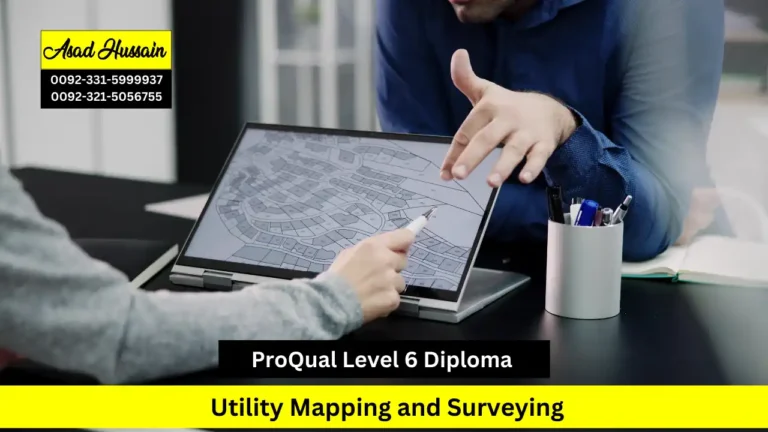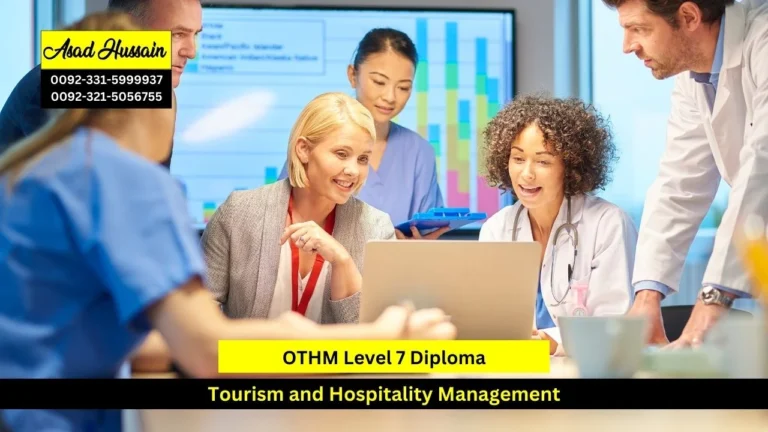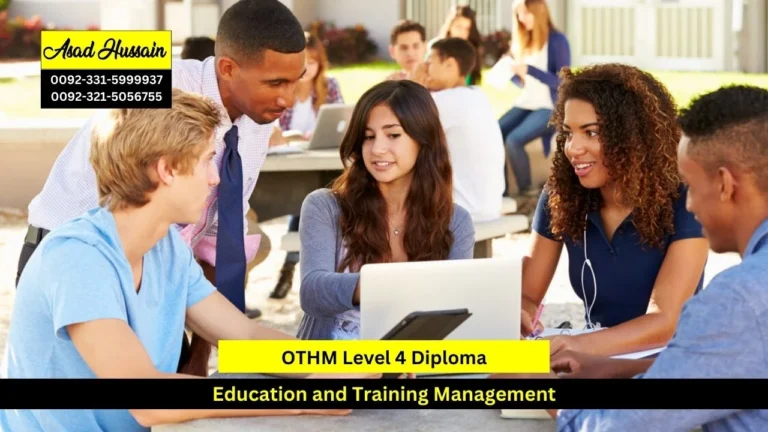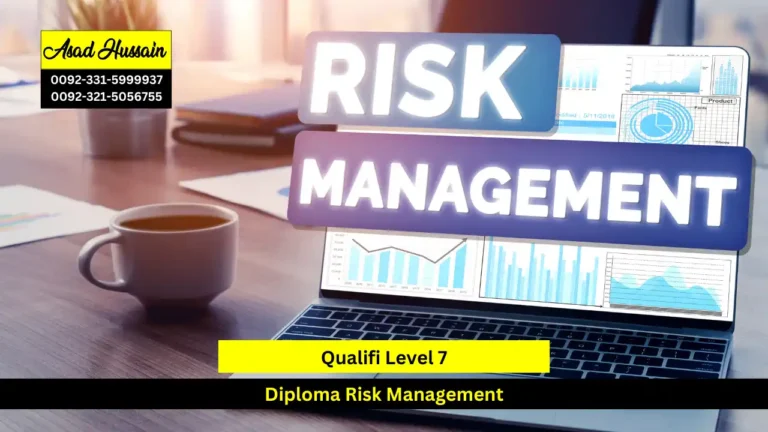Embark on a transformative journey into the cutting-edge world of immersive software engineering with the prestigious OTHM Level 7 Diploma. In today’s rapidly evolving technological landscape, the demand for skilled software engineers who can design immersive experiences is at an all-time high. This comprehensive program serves as your gateway to mastering the latest technologies and techniques in immersive software development, equipping you with the knowledge, skills, and credentials needed to thrive in this dynamic field.
Crafted by industry experts and experienced software engineers, our curriculum covers a diverse range of topics essential for building immersive applications and experiences. From virtual reality (VR) and augmented reality (AR) development to 3D modeling and simulation, you’ll delve into every aspect of immersive software engineering, gaining practical insights and real-world strategies to create immersive experiences that captivate and engage users.
What sets this diploma apart is its hands-on approach and focus on real-world applications. Through project-based learning, practical exercises, and industry collaborations, you’ll have the opportunity to work on immersive software projects from concept to deployment, honing your technical skills and building a portfolio of immersive applications. Whether you’re a seasoned software engineer looking to specialize in immersive technologies or a newcomer to the field seeking to explore new horizons, this diploma provides the tools and resources you need to succeed in today’s competitive tech industry.
Moreover, our flexible study options, including online learning and part-time study, make it accessible to busy professionals seeking to advance their careers while balancing work and other commitments. With personalized support from experienced faculty and access to state-of-the-art technology labs, you’ll receive the guidance and mentorship you need to excel academically and professionally.
Don’t miss out on the opportunity to elevate your career and become a proficient immersive software engineer. Enroll in the OTHM Level 7 Diploma today and take the first step towards a rewarding and fulfilling career in immersive technology. Unlock your potential, unleash your creativity, and embark on a journey towards professional excellence.
Program Highlights
The OTHM Level 7 Diploma in Immersive Software Engineering consists of 6 mandatory units for a combined total of 120 credits, 1200 hours Total Qualification Time (TQT) and 600 Guided Learning Hours (GLH) for the completed qualification.
Mandatory Units
| Sr# | Unit Title |
|---|---|
| 1 | Security Engineering |
| 2 | Software programming principles and practices in Java I |
| 3 | Agile Project Management |
| 4 | Cloud Computing & DevOps |
| 5 | Database & SQL Programming |
| 6 | Web Designing |
For entry onto the OTHM Level 7 Diploma in Immersive Software Engineering qualification, learners must possess:
- An honours degree in related subject or UK level 6 diploma or an equivalent overseas qualification
- Mature learners with management experience (learners must check with the delivery centre regarding this experience prior to registering for the programme)
- Learner must be 21 years old or older at the beginning of the course.
English requirements: If a learner is not from a majority English-speaking country must provide evidence of English language competency.
Upon successful completion of the OTHM Level 7 Diploma in Immersive Software Engineering, learners will achieve the following learning outcomes:
- Proficiency in Immersive Technologies: Develop advanced knowledge and skills in immersive technologies, including virtual reality (VR), augmented reality (AR), and mixed reality (MR), gaining proficiency in designing and developing immersive applications and experiences.
- Expertise in 3D Modeling and Animation: Acquire expertise in 3D modeling, animation, and rendering techniques, mastering industry-standard software tools and frameworks to create immersive environments, characters, and assets for virtual and augmented reality applications.
- Understanding of Immersive User Interfaces (UI): Gain an understanding of immersive user interface (UI) design principles and best practices, learning to create intuitive and immersive user experiences (UX) that enhance user engagement and interaction in virtual and augmented reality environments.
- Knowledge of Immersive Software Development: Understand the principles of immersive software development, including scene management, physics simulation, spatial audio, and gesture recognition, learning to implement immersive features and functionalities in software applications.
- Experience with Immersive Application Development Platforms: Gain practical experience with immersive application development platforms and frameworks, such as Unity3D, Unreal Engine, and ARKit/ARCore, mastering the tools and techniques used to build immersive applications for various platforms and devices.
- Ability to Design and Prototype Immersive Experiences: Develop the ability to design and prototype immersive experiences, creating wireframes, storyboards, and prototypes to visualize and iterate on immersive application concepts and functionalities.
- Skills in Immersive Content Creation and Optimization: Acquire skills in immersive content creation and optimization, learning to optimize assets, textures, and shaders for performance and visual quality in immersive environments, ensuring smooth and immersive user experiences.
- Understanding of Immersive Interaction Design: Gain an understanding of immersive interaction design principles, learning to design interactive gestures, controllers, and input mechanisms for virtual and augmented reality applications that enhance user engagement and immersion.
- Knowledge of Immersive Software Testing and Debugging: Learn to test and debug immersive software applications, identifying and resolving issues related to performance, compatibility, and user experience in virtual and augmented reality environments.
- Experience with Immersive Project Management: Develop skills in immersive project management, including project planning, scope definition, resource allocation, and milestone tracking, managing immersive software projects from concept to deployment effectively.
By achieving these learning outcomes, learners will be equipped with the knowledge, skills, and competencies necessary to excel as proficient immersive software engineers, designing and developing immersive applications and experiences that push the boundaries of technology and creativity.
The OTHM Level 7 Diploma in Immersive Software Engineering is designed for a diverse range of individuals seeking to specialize in immersive technologies and pursue careers in software engineering. This course is particularly suitable for:
- Software Engineers and Developers: Experienced software engineers and developers looking to expand their skill set and specialize in immersive technologies such as virtual reality (VR) and augmented reality (AR), enhancing their career prospects and staying competitive in the rapidly evolving tech industry.
- Game Developers and Designers: Game developers, designers, and programmers interested in transitioning into immersive software engineering roles, gaining expertise in 3D modeling, animation, and interactive storytelling for virtual reality (VR) and augmented reality (AR) games and experiences.
- Digital Artists and Content Creators: Digital artists, animators, and content creators seeking to explore new creative mediums and opportunities in immersive technology, learning to create immersive environments, characters, and assets for virtual and augmented reality applications.
- User Experience (UX) and Interaction Designers: UX designers, interaction designers, and user interface (UI) designers interested in specializing in immersive user experience design for virtual and augmented reality applications, enhancing user engagement and interaction in immersive environments.
- Technology Enthusiasts and Innovators: Technology enthusiasts and innovators passionate about exploring the forefront of innovation and pushing the boundaries of immersive technology, seeking to develop cutting-edge applications and experiences that redefine user experiences and interaction paradigms.
- Entrepreneurs and Start-Up Founders: Entrepreneurs, start-up founders, and business leaders looking to capitalize on the growing market for immersive technology, seeking to develop innovative immersive applications and experiences for entertainment, education, training, and enterprise solutions.
- Educators and Trainers: Educators, trainers, and instructional designers interested in leveraging immersive technology for educational and training purposes, learning to develop immersive learning experiences and simulations that enhance learning outcomes and engagement.
- Technology Consultants and Advisers: Technology consultants, advisers, and analysts advising businesses and organizations on adopting immersive technology solutions, seeking to gain expertise in immersive software engineering to provide strategic guidance and technical expertise.
- Career Changers and Tech Enthusiasts: Individuals from diverse backgrounds interested in transitioning into careers in software engineering and immersive technology, seeking specialized training and education to enter the growing field of immersive software development.
- Professionals Seeking Professional Development: Professionals from various industries, including entertainment, gaming, education, healthcare, architecture, and engineering, seeking to enhance their skills and knowledge in immersive software engineering for career advancement and professional development.

